Chester County Leadership: Jennifer Lopez, CEO of the Friends Association
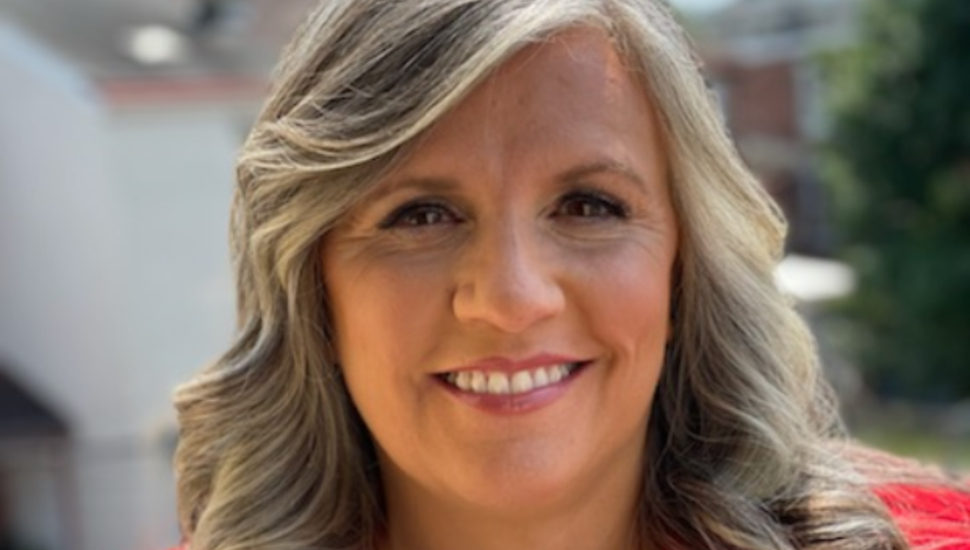

Jennifer Lopez, CEO of the Friends Association, spoke with VISTA Today about growing up on a farm in the Lehigh Valley, going to Honduras as an exchange student one summer in high school, becoming a national scholar-athlete as a senior, and being the only person in her family to attend college.
Lopez also discussed her first job after graduating from Kutztown University that brought her to Chester County, her unnatural path to leadership, her transition from working in government to the nonprofit sector, her organization’s priorities, and what the public can do to support Friends Association.
Where were you born, Jennifer, and where did you grow up?
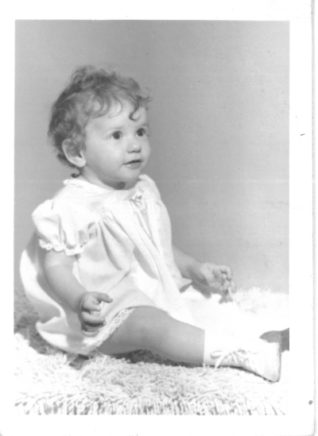
I was born the 2nd oldest of five kids in Easton, Pennsylvania, and grew up in Pen Argyl. It is part of Pennsylvania’s Slate Belt and nestled in the Blue Ridge Mountains. My mother is a 1st generation Italian American-her family immigrated to work in the slate quarries in that region.
What did your parents do?
My dad was an electrician and a farmer, and my parents ran a little butcher shop on the weekends. My mom was a stay-at-home mom when we were small and worked in my dad’s butcher shop on Saturdays. She worked in a sewing mill as an “inspector” when I was in High School.
What memories do you have growing up in Easton?
Most of my memories are from being out in nature. My brother, who is two years younger, and I used to ride our bikes to my grandparents’ farm on the weekends. We’d stop at a local store and get Slim Jims, Hershey bars, and Cokes. We would stop for a sip of water a little further down the road at an older woman’s house who had an old water pump in her front yard. I recently was back visiting, and the pump was still there! I took a picture. It’s a nice memory of our carefree days.
Did you have a job in the store?
I never worked in the store, but we always helped around the farm. Every Saturday, my older sister and I would be charged with cleaning the house while my mom worked and then reward ourselves with a Hershey bar from the store. I grew up with bad allergies, so it was, lucky for me, kept away from the manual labor.
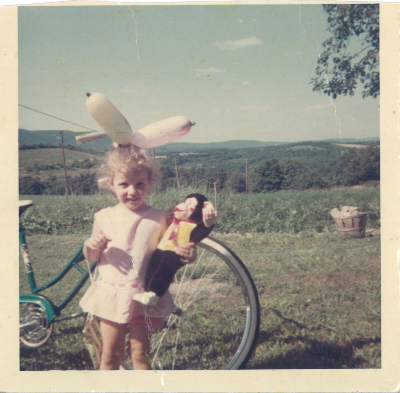
What was your first job away from your family’s store and farm?
I started babysitting when I was twelve or thirteen. I worked as a waitress at a local diner in high school. I learned a lot of customer service skills in that position and worked with some great people.
The region where I grew up is home to the “pasty”, a meat and vegetable turnover that is traditional in the coal mining regions of PA and Welsh communities around the world. My aunt was one of the original bakers of those pies. I worked a few summers helping her and made lifelong friendships. One summer, I stayed at college and painted dorm rooms all summer long. So, I hate to paint now. And one summer, I was the Director of Arts and Crafts at Camp Mogisca a girl scout camp in New York State-I had a lot of adventures there.
What lessons did you take from those jobs that still stay with you today?
I learned how hard people have to work to put bread on the table-it helped me build the strong work ethic I have today. I learned to appreciate, value, and respect the people doing that hard work. I think ultimately, I learned that all jobs are what you make of them-how you approach your work and your attitude will determine how much fun you have getting to know people made the time pass a lot quicker and have a lot more meaning later on. There were interpersonal skills and life lessons that I picked up on and learned that college would never prepare me for.
Where did your desire to go to college come from?
There were challenging aspects of my childhood from my parents, who had a lot of trauma in their lives that was passed on to us. I loved school, it was an escape, and there were many teachers that shaped me, encouraged me, and played a role in my resiliency. I wanted to be like them, so from an early age decided I would be a teacher. I also remember hearing my mom talk about how much she loved school and how much she wished she could have furthered her education and lacked the opportunities.
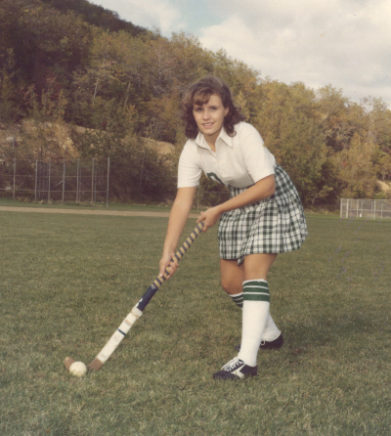
In the 11th grade, I went to Honduras as an exchange student for the summer. That really changed my worldview and provided even further motivation -I eventually changed my major from special-ed to Spanish-that experience had a lot to do with my decision.
Did you play any sports growing up?
I was a national scholar-athlete my senior year of high school. I played field hockey and softball. I did one season of basketball and didn’t really like it. I played softball for one year in college. I have a lot of good memories playing the game. I valued the comradery.
Where did you go to college?
I went to Kutztown University. One of my classmates’ moms took her daughter to visit Kutztown and asked me to tag along. It wasn’t too far from home, and I knew I could manage it on my own. Kutztown also had a great reputation with the education department. I loved the rural setting of the campus and the history of the buildings and the school.
Looking back on Kutztown, was it a good choice for you?
I think so! It was small enough to give me a sense of belonging and attracted diverse people from the students to the professors. I learned so much about the world and about myself. It opened my mind -I remember engaging in lots of deep conversations with my friends and in my classes. I found my “people” there. I also did work-study to pay my way – I was a tutor and then worked as a Resident Director in one of the dorms. There is so much to learn from the college experience that has nothing to do with academics.
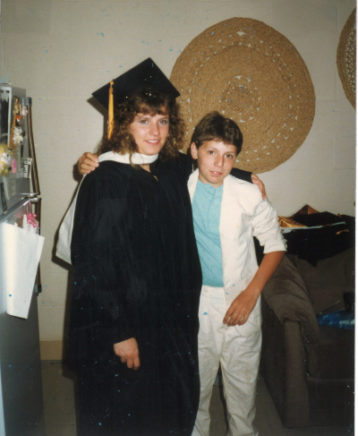
After graduation, who saw promise in you and opened doors for you?
There are so many different people. Even in middle school and high school, there were always people who impacted my path in life. They were like points of light for me that tied one part of my life to the next.
My first job out of college was with what was then known as the Pennsylvania Farm Workers Organization, and that’s what brought me to Chester County. It was in the late 1980s, and there was an immigration/amnesty reform and act passed by Congress. I was tasked with going to the mushroom farms and helping workers with their legal documentation to become green cardholders.
There was a Cuban woman who worked for the parent company, and she told me that she had a child who recently graduated college and knew how hard it was to get your first break. Because she knew that struggle, she opened those doors for me. From there, I was put in charge of Chester County, Berks County, and Adams County as well.
What did your manager at Pennsylvania Farm Workers Organization see in you?
I believe she saw someone eager to work, to listen and learn, someone who was empathetic and kind and willing to do what it took to get the job done. Also, my degree is in Spanish and at that point was fluent and was eager to work as an interpreter.
I soon realized I had a heart for social services and wanted to help people. I recall driving home one night after being at one of the housing units for mushroom workers-it was a small little bungalow and there were probably 10 men living there-away from their families and crying the entire ride home.
I often think, who determines where we land in life? I could easily be on the other side. At the end of the day, I always remember there is a human being on the other end of what I’m doing, with my work and whatever the situation is, that is being impacted. Everything I do, I do 150%. It’s innate.
Did that empathy come from your parents?
Yes, both of my parents. Both of them were caretakers and deeply rooted in taking care of family and our neighbors.
Who else opened doors for you that stand out along the way?
It’s so hard to pick one person! Time after time, there would always be someone. Judge Paula Francisco-Ott at Chester County sticks out to me as I was beginning to grow as a leader. She was a big supporter. She allowed me to stand and grow in my role. First as a supervisor, then a drug coordinator, and eventually deputy of the probation department.
The Chief Probation officer for Bucks County, Sean Ryan, was a huge supporter and got me involved in things outside of the department that opened doors for me as well.
You had a very unnatural path to leadership.
It’s been a whole life journey to get to this point filled with small steps along the way on my leadership path. Even within my family, I have naturally been the one people go to. I’m also a Leo so come by it honestly. I’m not sure how much is nature vs. nurture but I believe I have some innate qualities that made leadership a natural fit.
What leadership skill did you see in yourself that allowed you to feel comfortable to step into that role?
Stepping into leadership roles is never comfortable, but it’s what we do to level up and stretch ourselves. Saying “yes” to opportunities is how I’ve gotten to where I am. I see the big picture and have strategic thinking skills. I believe I bring authenticity to the table as a leader-which inspires trust. I’m calm under pressure, things can be in complete chaos, and internally, I am saying to myself, “I am going to figure this out.” Still, externally, I can show a calmness that everything is fine and under control and get people to follow to where we are headed
How did you come from the County into Friends Association?
I loved working for the County and the work I did, especially with women who were incarcerated. That population speaks to my heart. I see myself in them, and sometimes it was like meeting myself. I saw the imperfect qualities that we all have and how life can take a person down different paths by simple choices or by the color of your skin. I found real honesty with those women. I remember one woman I connected with, and our stories were not so different, she is a black woman and so while I went to college, she became trapped in “systems.”
I resonated with the social work aspect of community corrections. , I started doing trauma programming in County in probation and parole. That was fifteen years ago, when no one was talking about trauma in criminal justice. I had attended a training on that topic, and it really resonated with me, so I started bringing that work to the county system – and even the state system. We began viewing the people we are interacting with through the lens of their past and even current experiences and really understanding how trauma, which is broadly defined, impacts the entirety of a person’s life and how it can lead to direct involvement in the legal system. When we couple that knowledge with learning different ways to respond to behaviors and symptoms of trauma-we have better outcomes-people get their lives back.
During that time, I was experiencing a crisis of consciousness. The penal system is damaging. It is tearing apart families. As much good as we are trying to do in Chester County, it’s still punitive, inequitable and harmful to our communities. It’s a failed social experiment.
I was pushing for systemic change while at the same time coming to the realization that my work no longer aligned with my value system and beliefs.
About two years before I left the County, I made up my mind that although I didn’t know what direction I was heading or what I wanted to do, I would do something every day that leads me toward my future. Whether reading a chapter in a book or calling someone in the community to discuss potential opportunities, I was building up to my new move.
I had two job offers at the same time. One was to work at the state level – still within the criminal legal system. When I researched the position and looked further into criminal justice reform, it was apparent that true change comes from the community. Reinvestment needs to be done at the community level in nonprofits that are partnering with the community. Good nonprofits know the issues and work with community experts to provide support and address issues directly impacting our neighborhoods.
That’s what Friends is all about and has been for almost 200 years. I resonated deeply with the organization’s ability to partner with the community, determine what the needs are and build support to address those needs.
What surprised you coming from the government to nonprofit?
The ability to make quick decisions! Being able to decide what’s right and getting it done and not having meetings upon meetings to talk about it. I was also surprised, however, to find that the housing service system is another system of oppression. It’s non-equitable and damaging to families.
What drove me to Friends above anything else was our history of social justice. Next year will be our 200-year anniversary! I did a deep dive before accepting the position, and it was abolitionist Quaker women who founded the organization. They didn’t just see children that needed to be saved.
They went into African American communities and asked, how can help? How can we leverage our privilege and positions in life to help? So, they created an orphanage. Those strong women who had a social justice mindset are an inspiration.
At Friends, we keep families during the crisis of homelessness. We are the only low-barrier shelter in the family that can do that. We like to think that we are continuing the legacy of social justice that our founders began in 1822.
Give us a quick overview of Friends Association.
We are a local nonprofit that is focused on solutions to family homelessness. Chester County is the most affluent County in the state and one of the wealthiest on the East Coast. We still have hundreds of families who face homelessness and housing insecurity each year. We have a very bold vision for change and believe it takes all of us to create a more equitable community for all.
We have four pillars of service. First, we PROVIDE emergency shelter through our emergency housing program for families. We know PREVENTING homelessness makes moral and financial sense and is the best route to end homelessness. We provide short-term financial assistance and case management for families who need it
During the pandemic, we created the County’s first Eviction Prevention Court. We are currently in three district courts where we provide legal services, social service support, and financial assistance. This is how we prevent evictions.
We also PARTNER with families exiting any shelter in the county during the first critical months of stabilizing in their own homes.
In addition, we work with women being released from incarceration through stabilization services, case management, and reunification with their children.
Within that framework, we are also PROMOTING and advocating for systemic change locally and statewide.
As 2021 draws to a close, Jennifer, what are your current priorities?
We are still very much in triage mode. The pandemic highlighted issues that we’ve been focused on for two hundred years. That’s been good and bad. We’ve seen an increase in awareness in the community around issues related to housing and employment. We’ve seen a rise in support as well as a rise in need.
People are calling us for assistance who never had to reach out before. Our final numbers for the last fiscal year were a 120% increase. We are one of five agencies in the County doing emergency rent relief, and we can barely keep up with the requests coming in.
We are dreaming big. – Solutions for affordable housing, keeping families together, supporting one another – but at the same time, triaging what is still a crisis for so many people. We have people still trying to figure out childcare, navigate job losses, a low minimum wage, living without healthcare, and so much more.
The affordable housing stock in Chester County is almost non-existent. There is a lot of money flowing in from federal and state relief dollars but being able to find a place to live is challenging.
What can the community do to help Friends Association?
Advocacy, for sure. Just becoming aware of the situation and understanding the nature of the problem. Family homelessness is a real crisis in this country. We don’t see the families on the street in Chester County, but they exist.
We always need financial assistance. Historically, we are 25-30% government-funded, and the rest is on us to fundraise ourselves, write grants, going to foundations. We have a very committed base of donors who understand the issues and want to give back.
The pandemic limited our Ability to host volunteers so we took that opportunity to work with a consultant to develop a new volunteer program based on justice and centered on the needs of our neighbors.
We have our annual gala on December 4th, which is our biggest event of the year and is open to everyone.
We hope to expand and provide more educational opportunities in the new year to continue to raise awareness.
What plans do you have to celebrate your 200thanniversary?
Our 200th-anniversary committee is already planning a yearlong series of events if anyone is interested in joining the planning committee. We are working with an archivist to do a deep dive and highlight our robust history. We are looking for families who we have served over the years and former employees to tell stories.
We hope to commission a mural arts project on the side of our building, and we are currently working with the Public Arts Commission in West Chester on that project.
What gives you hope, Jennifer?
The strength and resiliency of the human spirit. Every day we encounter people who may be at the lowest point in their lives. Looking at it from the outside, you wonder how they go on- we get to see the resiliency of their spirit. The joy and happiness of families together and the love between them, nothing else really matters.
What do you do with your free time?
My husband is originally from Mexico and we plan to retire in his hometown on lands his family has inhabited for generations. Our family is deeply connected. We have two great children, both artists, and a two-year-old granddaughter. During the pandemic, our daughter and granddaughter moved back home so our lives have been filled with toddler chaos, and it’s been a complete joy.
Family is usually at the center of my free time.
What are you reading?
I have about 17 books about social justice, nonprofit industrial complex that are spread around my house, and I pick them up randomly and read different chapters. I just finished reading a chapter in a book about monarch butterflies.
Finally, Jennifer, what’s the best piece of advice you ever received?
I had an elderly Aunt Shirley who said, “there’s always two sides to every story” There’s always two viewpoints of situations and circumstances, so always be neutral and understand that there are different ways of looking at things.
Connect With Your Community
Subscribe to stay informed!
"*" indicates required fields



















![95000-1023_ACJ_BannerAd[1]](https://vista.today/wp-content/uploads/2023/03/95000-1023_ACJ_BannerAd1.jpg)




























